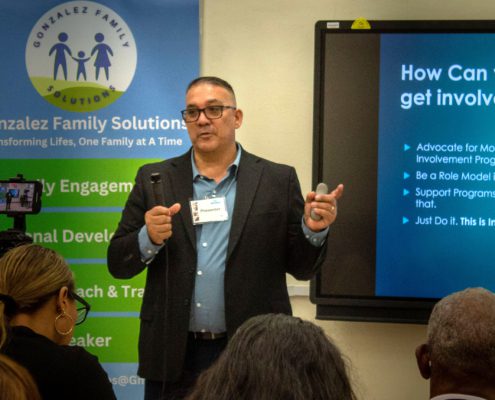 https://www.ostomy.org/wp-content/uploads/2024/05/peggy-short-bowel-syndrome.png
578
774
Contributor
/wp-content/uploads/2017/02/UOAAlogofinal2.png
Contributor2024-06-20 14:30:502024-06-20 15:51:54Peggy: Her Short Bowel Syndrome Story
https://www.ostomy.org/wp-content/uploads/2024/05/peggy-short-bowel-syndrome.png
578
774
Contributor
/wp-content/uploads/2017/02/UOAAlogofinal2.png
Contributor2024-06-20 14:30:502024-06-20 15:51:54Peggy: Her Short Bowel Syndrome StoryQuestions and answers about this serious gastrointestinal disorder
“Short Bowel Syndrome generally occurs when a large portion of the small intestine has been removed by surgery as a result of disease or injury.”
Some patients with an ostomy may also have what is known as Short Bowel Syndrome (sometimes called Short Gut Syndrome). It is important to talk to your doctor if you think you may have this condition.
What Is Short Bowel Syndrome?
Short Bowel Syndrome (SBS) is a serious and chronic disorder. SBS is the result of physical loss and functional deficiency of portions of the small intestine (a.k.a. bowel), primarily due to surgical resection. Intestinal Failure, an associated condition, leads to the inability to absorb sufficient nutrients and fluid from your diet necessary for your health.
Common SBS causes in adults include Crohn’s disease, vascular events, bariatric surgery complications and trauma. Common SBS causes in pediatrics include necrotizing enterocolitis, midgut volvulus, intestinal atresia, gastroschisis and malrotation.
What are Common Symptoms?
If you have SBS, you may experience symptoms related to difficulty in absorbing the proper amounts of vitamins, minerals, nutrients, electrolytes and fluids. Adults with SBS often experience symptoms of malnutrition including poor skin and nails, weight loss and low energy. Infants and children may also fail to grow and develop. Symptoms vary according to the individual.
The following symptoms may occur at any time, but exacerbations indicate lack of adequate nutritional management:
- Diarrhea (various types) and high ostomy output. This major symptom is often accompanied by dehydration, malnutrition, weight loss and fatigue. Reasons vary with the type of resection and the amount and functionality of the remaining bowel.
- Abdominal pain and bloating
- Weight loss and malnutrition
- Dehydration
- Fatigue and weakness
How Is Short Bowel Syndrome Diagnosed?
The diagnosis of SBS is based on a combination of a complete medical history, physical exam, laboratory tests, imaging exams and evaluation of operative reports.
How is Short Bowel Syndrome Managed?
Management options for SBS are patient-specific and complex. A lot of factors determine the management, like the parts, length and function of remaining intestine after surgery. The management plan may change over time. The treating provider, often with the help of a registered dietitian or certified nutrition support clinician, will develop a plan that is best for each patient.
If you are a patient with SBS, you may have trouble absorbing the proper amount of nutrition and fluid from your diet. That’s why the primary treatment goal is to ensure that you get the nutrition and fluid that you need (including proteins, carbohydrates, lipids, vitamins and minerals). At that same time, your provider will focus on symptom management using a variety of therapies.
Some patients who cannot maintain adequate nutrition and hydration by mouth may depend upon intravenous nutrition (IV) and hydration. This is commonly known as Parenteral Support (PS) or Parenteral Nutrition (PN). IV access needs to be established with a special IV that can remain in place for an extended period. PS or PN are often just administered at bedtime to allow patients normal activity during the daytime.
Are there Complications of Short Bowel Syndrome?
If you have SBS, you may also experience some common complications. Not everyone experiences complications. These are some common complications:
- Dehydration
- Weight loss and malnutrition
- Electrolyte abnormalities/imbalances
- Vitamin and mineral deficiencies
- Acidosis
- Small bowel bacteria overgrowth
- Kidney stones
- Central line complications (such as infections)
- Gastric hypersecretion
- Kidney stones
- Bowel obstructions
- Intestinal failure associated liver disease (liver fibrosis)
- Gallstones
- Low bone mineral density
Again, it is important to talk to your doctor if you think you may have this condition. For more information visit www.shortbowelsyndrome.com
Read Our Latest Posts About Short Bowel Syndrome
 https://www.ostomy.org/wp-content/uploads/2024/05/peggy-short-bowel-syndrome.png
578
774
Contributor
/wp-content/uploads/2017/02/UOAAlogofinal2.png
Contributor2024-06-20 14:30:502024-06-20 15:51:54Peggy: Her Short Bowel Syndrome Story
https://www.ostomy.org/wp-content/uploads/2024/05/peggy-short-bowel-syndrome.png
578
774
Contributor
/wp-content/uploads/2017/02/UOAAlogofinal2.png
Contributor2024-06-20 14:30:502024-06-20 15:51:54Peggy: Her Short Bowel Syndrome Story
Osmani Gonzalez’s Story
Caregivers, Colorectal Cancer, Ileostomy, ostomy reversals, Patient Stories, Personal, Short Bowel Syndrome
Lori’s story: Living with Crohn’s Disease, Ostomy, and Short Bowel Syndrome
Digital Sponsor, IBD, Ileostomy, Patient Stories, Short Bowel SyndromeContact Us

United Ostomy Associations of America
P.O. Box 2293
Biddeford, ME 04005-2293
Call us toll-free at: 1-800-826-0826.
Our Information Line hours are Monday-Friday, 9am to 3pm EST. If you have an emergency, please dial 911 or contact your local medical professional.
Please understand that UOAA is a private, nonprofit, advocacy and informational organization. We are not a medical facility and we do not have medical or legal professionals on staff. Therefore, UOAA does not provide Medical, Mental Health, Insurance or Legal Advice. Visit UOAA Virtual Ostomy Clinic provided by The Wound Company for non-emergency, virtual ostomy support.
Get Involved
UOAA is the leading organization proactively advocating on behalf of the ostomy community. Recognizing that we are always stronger together, we encourage everyone to get involved by joining our Advocacy Network. We’ve also created several Advocacy Tools and Resources to help you successfully advocate on behalf of the ostomy community to ensure every ostomate receives quality care.
Latest News:
 Panniculectomy with stoma re-site allows ostomate to thriveJuly 24, 2024 - 4:12 pm
Panniculectomy with stoma re-site allows ostomate to thriveJuly 24, 2024 - 4:12 pm Our Ostomy Story- Chris and AlexaJuly 8, 2024 - 10:49 am
Our Ostomy Story- Chris and AlexaJuly 8, 2024 - 10:49 am Where Should I Purchase my Ostomy Products?June 28, 2024 - 1:02 pm
Where Should I Purchase my Ostomy Products?June 28, 2024 - 1:02 pm Peggy: Her Short Bowel Syndrome StoryJune 20, 2024 - 2:30 pm
Peggy: Her Short Bowel Syndrome StoryJune 20, 2024 - 2:30 pm Embracing Life After Surgery June 13, 2024 - 11:16 am
Embracing Life After Surgery June 13, 2024 - 11:16 am

UOAA does not and shall not discriminate on the basis of race, color, religion (creed), gender, gender expression, age, national origin (ancestry), disability, marital status, sexual orientation, or military status, in any of its activities or operations.
